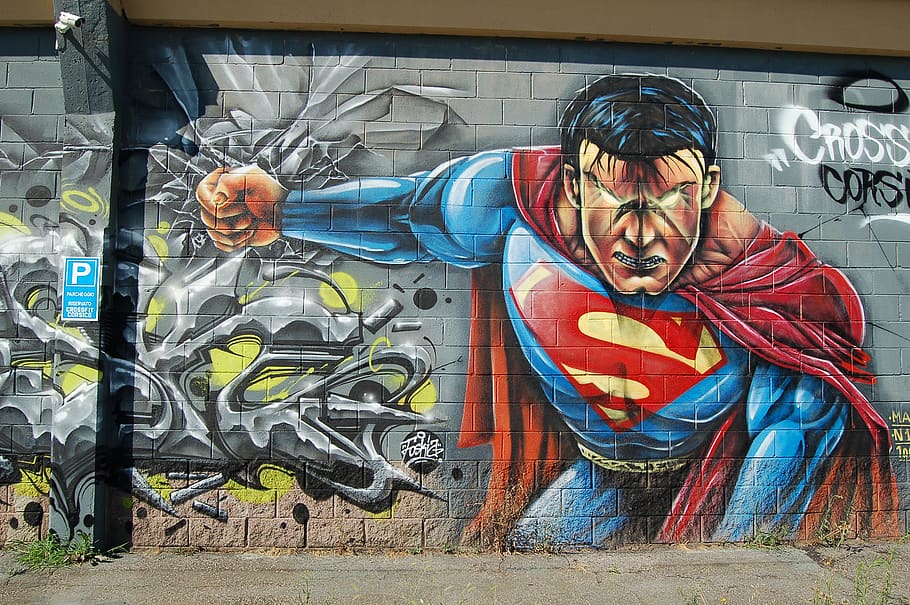The Extrinsic Self – which is to say, ‘the self which is based entirely on rules’ – and the State of Openness are completely incompatible with each other. Or rather, the Extrinsic Self is incompatible with Openness, since Openness doesn’t actually mind either way – its nature being to be unconditionally open to everything, including the ES.
There are two antithetical principles at work here – the nature of openness is to be ‘open to everything’ (as we have just said) whilst the nature of the ES is to be open only to the version of reality which it takes for granted (i.e., the ES is only open to the projected world which agrees 100% with its ideas or beliefs). This means that it isn’t open to anything therefore since the world that matches its ideas doesn’t exist. To agree with ourselves (to see only what we are biassed towards seeing as true) is a meaningless thing. We could also express this by saying that Openness doesn’t agree with anything. It doesn’t play favourites.
This is a problem since the everyday self can only hang together if it can find something (or someone) to agree with it, and the one thing Openness is never going to do is this! The only thing that’s what agree with the ES in the way that it needs is its own reflection, its own projection, its own picture of reality made real, so this is the road it has to go down. This is the only road available for it. Self-reference is the only road available to it.
The Extrinsic Self – we could say – is made up of a collection of positive (or ‘definite’) statements and whenever we make a definite statement that statement automatically calls forth an echo, the empty confirmation of what has been unconsciously presumed. Why this should be the case is very simple to explain – in order to make a positive statement (a positive statement that is in any way meaningful, that is) we need to narrow down our awareness of ‘what is possible and what is not possible’. We have to drastically curtail or limit the way we have of seeing things in the particular way that suits our statement, in the way that echoes the premise we have so glibly assumed in order to be able to make it. This is the operation of bias – bias always creates a closed system. Bias actually IS a closed system, a system that can’t ever go beyond itself.
This comes back to what we have just said – a statement can’t make sense in an open situation. It has zero stability, so to speak; It has no stability (or no credibility) without having its echo chamber around it, without having an environment to agree with it, without having anything to measure itself against. Instead of talking about ‘making a positive statement’ we could just as well talk in terms of ‘making a rule’; the thing about making a rule is that we are saying, in an unequivocal manner, what is definitely true. We’re not saying what could be true, or what might be true, we’re saying what absolutely is true!
In a truly open situation, however, nothing can be said to be ‘definitely true’. There are no rules to rely on, or – to put this another way – any rule that we make is only ever going to be as true as any other rule that we might possibly make and if everything is true then nothing is. If any statement that we could ever possibly make is true then the term ‘true’ has precisely zero meaning; it’s like trying to have ‘a figure without a background’ or ‘an up without a down’. There’s no contrast and so we can’t see anything. We can have rules in the Open Universe but, only with the reservation that they don’t actually mean anything, only with the reservation that they only mean something when we choose to look at the world in the particular way that makes them mean something. This – of course – makes a joke of everything.
So, when we make a rule (in what at least appears to us to be meaningful), then we have to perform what Alan Watts calls a ‘dodge’ – we have to do two things simultaneously and then only pay attention to one of them. We make the rule – and, as we’ve just said, in an open situation we’re perfectly free to do this – and at the same time we limit the way we see the universe to a single perspective, which is the perspective that is taken for granted in the formulation of that rule. For a rule to be meaningful to us (i.e., for it to actually be a rule) we have to limit ourselves to the narrow little world that has been presumed by it, and the thing about this is that <the rule> and <the world that has been presumed by the rule> are one and the same thing. There is no difference between whatsoever between the rule that is being considered ‘in the abstract’ and its expansion (which is to say, what we subjectively perceive to be true as a result of unreflectively using that rule to interpret, evaluate or conceptualise that world). Just to make the point again –
There is ‘the rule’ and there is ‘the projection of the rule onto the screen of the outside world’ and both of these are the very same thing. Both of these aren’t anything.
It’s not as if we’re consciously utilising or performing this dodge however – the two elements of [1] ‘Making the rule’ and [2] ‘Seeing the world in terms of that rule’ happen simultaneously, they are the two aspects of the same package, as it were. This is like a perfectly spherical ball which is delicately poised on the edge of a very steep incline, and which needs – therefore – only the slightest touch to start it rolling down that incline; once it starts then it very quickly picks up momentum and becomes – in pragmatic terms – unstoppable. Its fate is sealed, so to speak. ‘Unstoppable’ here also means unquestionable since the process of Symmetry Breaking automatically eliminates the possibility of us being aware of what’s going on, since the perspective needed to see this is the very thing that is being lost. The process of ‘losing perspective’ requires perspective in order to see it happening, but an information collapse involves precisely the loss of this perspective. That’s what a W-Collapse is. The crime whereby reality is murdered is thus a ‘perfect’ one, as Baudrillard observes; it is a perfect crime precisely because there are no witnesses left to report on it.
The cataclysmic information collapse that we’re talking about here shows us ‘a world that isn’t true’ therefore – it’s a world that isn’t true, but we have zero capacity to appreciate this fact (at least, not when we’re operating on the basis of the meagre ‘single perspective’ that thought allows us). This world – the subjectively true world that thought so helpfully provides us with – is peculiar in the sense that it comes in two mutually dependent phases – what we might conveniently call the Elation Phase and the Despair Phase. All conditioned life occurs in either one phase or the other and this is a bit of information that we are (quite understandably) very reluctant to hear.
In summary, we can say the following –
The Extrinsic Self can exist only in the ‘subjectively true’ world which supports or confirms its presumptions. These suppositions aren’t true but only appear to be true – in a strictly two-dimensional kind of way – when we look at the world in a specially slanted or distorted way.
The operation of Cosmic Law – which is paralleled in the physical universe in the production of equal numbers of particles and antiparticles following the initial Cosmogenic Symmetry Break – means that the elation which the ES experiences (when it believes in its own existence) will be followed (as surely as ‘the wheel follows the ox that draws the cart,’ to borrow the phrase from the Dhammapada) by an equal and opposite state of despair. This despair doesn’t mean that the Extrinsic Self has now ‘seen through the illusion of its own existence’ – there would be no one left to own the despair if this were the case – but rather it means that the ES interprets the ‘reversed elation’ in its own distorted way (which is to say, in terms of some extraordinarily bad thing, in terms of a disaster of tremendous, all-encompassing dimensions). If we were to carefully examine what exactly this ‘super-bad’ thing is and reflect upon the question as to why this would be such an unmitigated disaster we would find no real basis for it – the moon continues to orbit the earth, the sun continues to shine, the stars continue to twinkle in the night sky just as they always did, and so on. The dreaded disaster only exists for the ES, in other words.
We don’t trouble ourselves by examine our ‘automatic reacting’ carefully of course – the whole point is that we don’t examine it. Instead, we will wallow in the despair until we have extracted every last drop of misery out of it; we will make sure that we squeeze out every last drop of suffering from the sponge. We can’t blame the poor old ES for this ridiculous wallowing however – Cosmic Law dictates that it does so, since the degree to which we suck out the very last drop of euphoria from the illusion of our supposed existence is also the degree to which we are obliged to ensure that we ‘maximise our indulgence’ in the Black Despair that follows on from it. Everything that happens is determined by mechanical laws and the operation of these laws mean that we are obliged to keep on walking down this ‘road that goes nowhere’. We are obliged to keep on playing the ‘Waiting Game’, waiting for a resolution that never comes. Elation – we might say – is when we believe that we’ve found it, whilst Despair is when (however temporarily) we realize that we never will.
Saying that ‘the Extrinsic Self is made up of two mutually dependent phases’ is just another way of saying that it exists within a Closed World – when we’re in the first phase then there’s nowhere else to go but the second phase, and when we’re in the second phase then this means that we have nowhere else to go but the first one. This is about as interesting as it gets. Because – for us – there is such a tremendous difference between pleasure and pain it feels that we really are getting somewhere – moving out of the Pain Phase feels like wonderful progress. We don’t see that we’re in the same place, we become incredibly short sighted when we’re living in ‘the world that thought makes’ and so we don’t feel that we’re in the same place; we are operating on the basis of short-term goals and all we want is to say goodbye to the pain. That’s the limit of our ambition, the limit of what we care about.
Moving into the pleasurable phase is the ‘be all and end all’, the Greatest of all Outcomes, and so of course we never look beyond it. The illusion is that once we’re there then everything will be great, that everything will be unimaginably fabulous. To be ‘free from the relentless goad’ is all we could ever want; we will do anything to bring this about. We can see this shortsightedness at work in all games; this is exactly what the game is – it’s the enactment of our terminal shortsightedness. ‘Winning’ – as everyone knows – is the Holy Grail and no one ever looks beyond the attainment of the Holy Grail. Freedom from the goad is what we want most in the whole wide world. The intense contrast between pleasure and pain – which is very real for the ES – is thus the reason that we don’t ever see that we’re going nowhere. We can’t see that the Pain Phase and the Pleasure Phase are one and the same thing (which is to say, ‘the System of Thought’) and that this so-called ‘thing’ doesn’t actually exist.
Image – aipassportphotos.com






